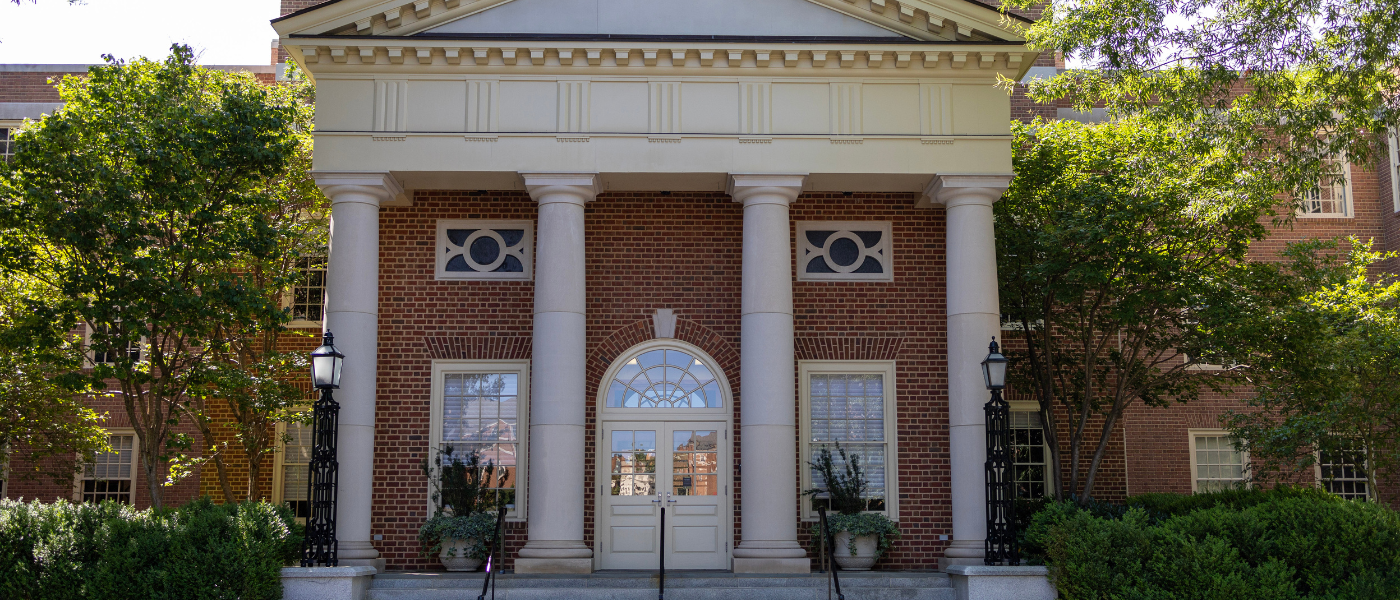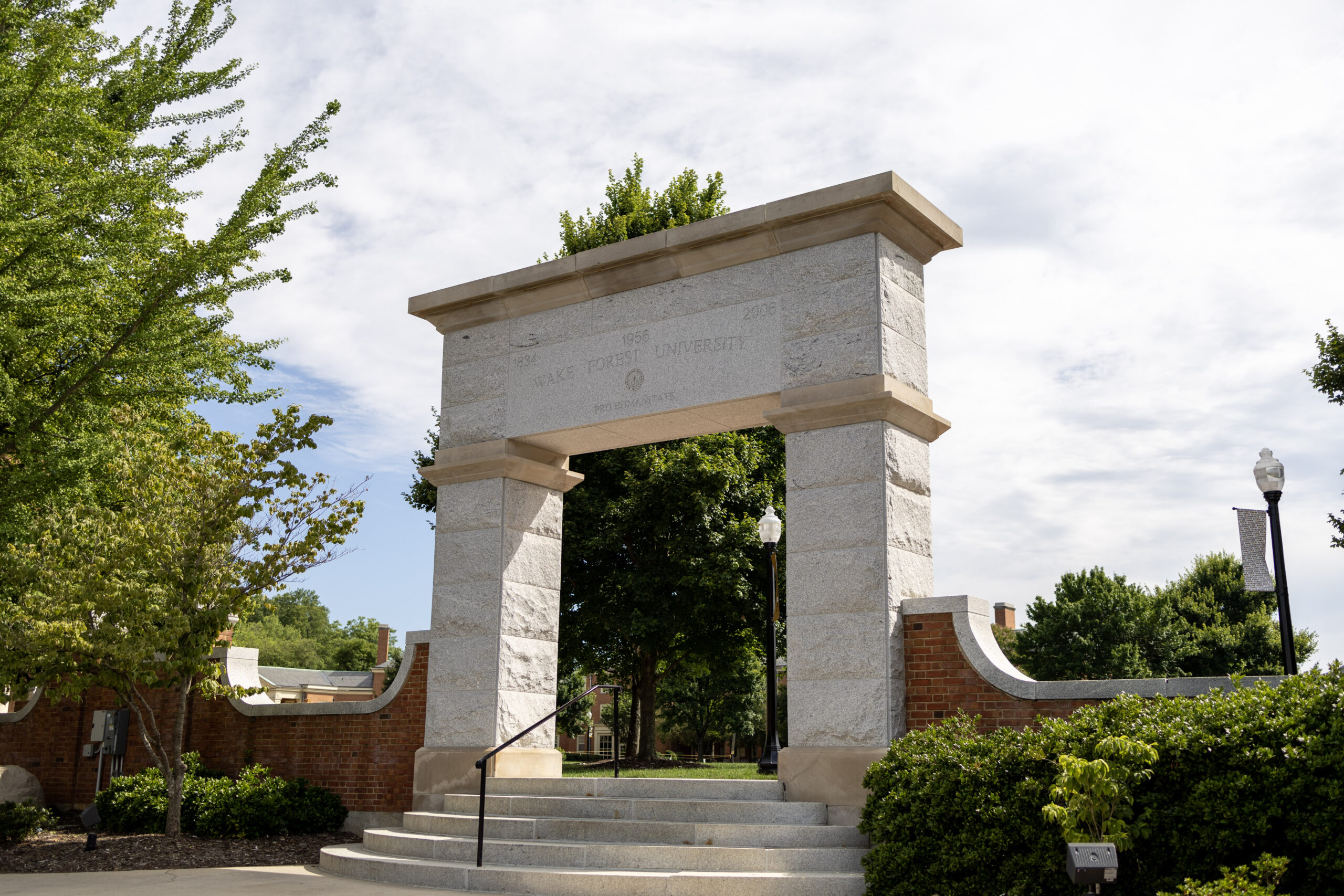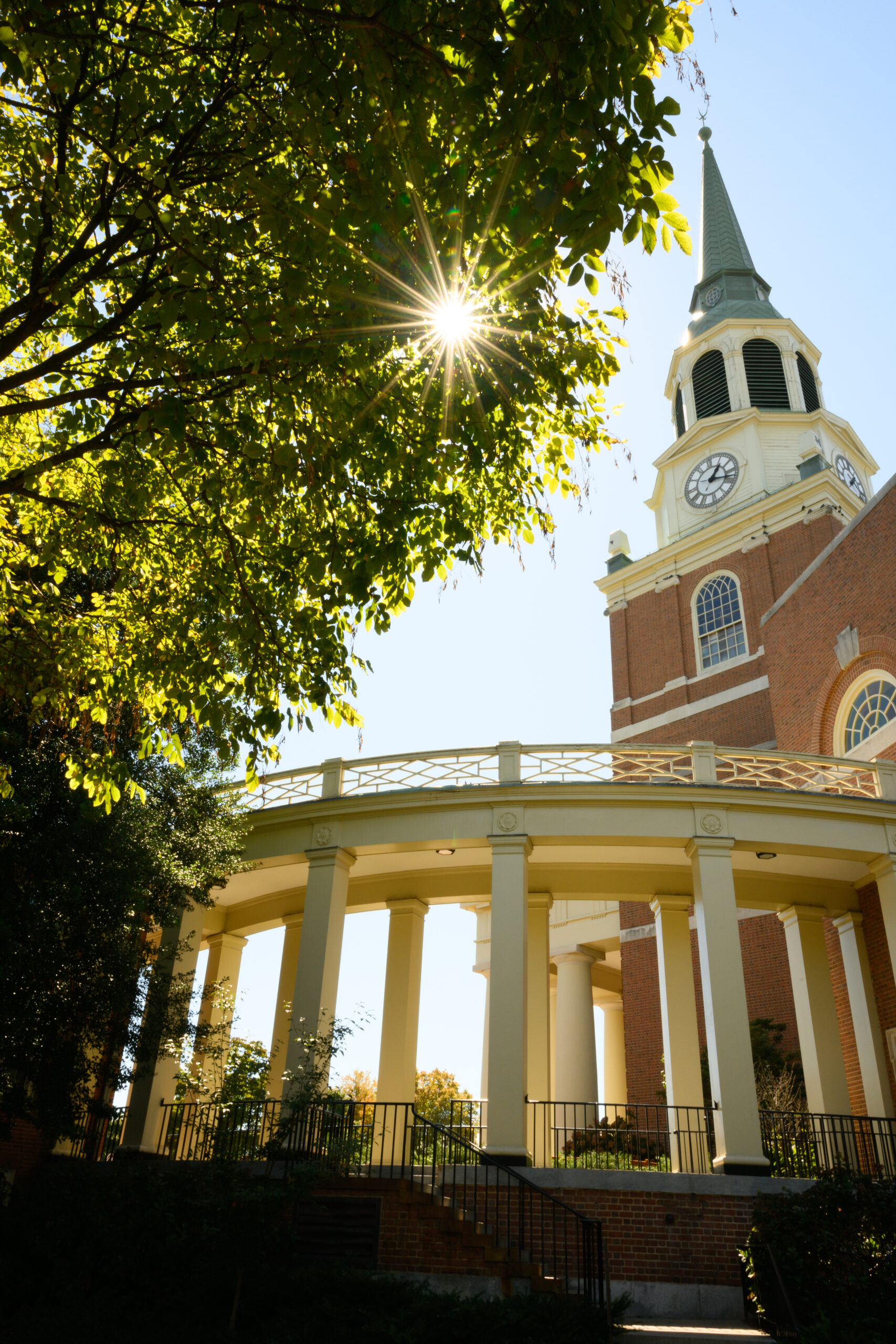Wake Forest University School of Divinity launched its reimagined Master of Divinity in Fall 2024.
Introducing the Reimagined MDiv at Wake Forest University School of Divinity
When Wake Forest University School of Divinity opened its doors in 1999, theological education and congregational life were changing. The entering class embarked on a theological journey where the future of traditional Christian ministry was anything but certain. A quarter of a century later, theological education and congregation life have transformed dramatically.
Today, students enter Wake Divinity dedicated to serve dynamic congregations as well as to assume positions as nonprofit leaders, educators, legal professionals, counselors, entrepreneurs, and many other nontraditional ministry roles. Wake Divinity students have used and continue to use their theological education in ways that redefine Christian ministry and service.
Now, as then, we are guided by our audacious mission in challenging and complex times as we equip new generations of students to be ‘agents of justice, reconciliation, and compassion for Christian ministries and other ministries.’
Corey D. B. Walker, Dean of the School of Divinity and Wake Forest Professor of the Humanities
The reimagined MDiv curriculum provides an integrative, interdisciplinary, and individualized theological education. These principles of the new curriculum are aligned with Wake Forest University’s strategic framework as well as the School of Divinity’s mission and its signature Wake Divinity Experience.



Reimagining the Wake Divinity MDiv
Integration
Seamless blend of theological education, congregational engagement, and community involvement
Interdisciplinary
Conversations with scholarly communities from diverse fields and equitable collaboration with scholars & practitioners
Individualization
Curated opportunities for intellectual exploration, spiritual growth, and vocational formation that are uniquely customized to an individual’s journey
Frequently Asked Questions
The new MDiv curriculum is 72 credit hours.
- Old Testament Interpretation
- New Testament Interpretation
- Two Biblical Studies Electives (not including Greek or Hebrew)
- History of Christianity
- Social and Cultural Analysis
- Christian Theologies in Context
- Foundations in Christian Ethics or Introduction to Theological Ethics
- Practical Theologies for Social Change
- Art of Ministry
- Internship and Internship Reflection Seminar
- Integrative Capstone
- A Spirituality Elective
- An Interfaith Dialogue Elective
30 general elective hours are required under the new curriculum.
Yes. The internship requirement will remain the same.
No. There is not a language requirement under the new curriculum. Students will still have the opportunity to take Greek and Hebrew courses through the School of Divinity, as well as other language courses offered at Wake Forest University.
There are two new required courses under the reimagined curriculum. Social and Cultural Analysis will introduce students to interdisciplinary tools and methods for social and cultural analysis of the historical contexts in which religious leaders and faith communities engage in theological reflection and ministry practice. Practical Theologies for Social Change is an introduction to theological reflection on the skills and practices central to transformative religious leadership, including proclamation, worship, and relational care.
Area requirements were designed to ensure that all MDiv students encountered the topics of race and class; gender and sexuality; cross-cultural connections; science, health, and ecological well-being; and religious pluralism. The new curriculum is designed to integrate these topics both in required core courses and across the curriculum as a whole.
No. Instead of prescribed concentrations, students will have the opportunity to use their elective courses to specialize in an interdisciplinary area of individualized interest. A Senior Project option will allow for even deeper specialization for students interested in a particular research area. The Integrative Capstone course will assist students with articulating how their own course of study reflects their areas of interest and specialization.
Yes. There will be a new Senior Project option that involves two 3.0 credit courses in students’ final year of study under the guidance of a faculty advisor and the Academic Dean. This will involve a research component in the Fall and a thesis or similar project in the Spring.
Yes, the number of credit hours and required courses have also been changed for dual degree programs, but only on the MDiv side of those curricula. These changes will be published before Fall 2024 advising.
Yes. Returning students may select the new curriculum prior to Fall 2024 registration. While students selecting the new curriculum will register for Fall courses with the new requirements in mind, the new curriculum will not show up on their degree audits until the start of the Fall 2024 semester.
Yes. Required courses that current students have already taken will count for required courses under the new curriculum.
Yes. Returning students will be able to remain in the curriculum that was in place during the academic year in which they entered the MDiv program. Required courses from the current curriculum, or equivalent courses, will be offered as needed until all students who remain on the current curriculum graduate.
Yes. Returning students who have declared a concentration may complete that concentration regardless of whether they remain on the current curriculum or opt for the new one.
Contact Information
If you have questions about the new curriculum, please feel free to reach out to any of the following contacts.
- Office of Academic Affairs
acadiv@wfu.edu - Dr. Elizabeth Gandolfo, Associate Dean for Academic Affairs and Earley Associate Professor of Catholic and Latin American Studies
gandoleo@wfu.edu - Mary Ellen Walter, Assistant Director of Academic Services and Assistant Registrar
walterme@wfu.edu - Khelen Kuzmovich, Academic Program Coordinator
kuzmovk@wfu.edu
Students should also talk to their academic advisors before Fall registration about their decision to remain on the current curriculum or opt for the new one.

